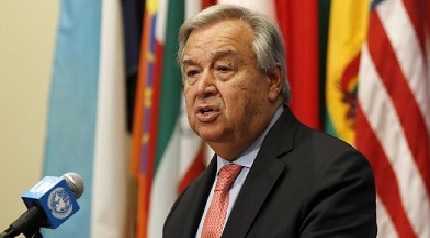
UNITED NATIONS, Aug. 31 (Xinhua) -- The Pakistani people are facing "a monsoon on steroids," UN Secretary-General Antonio Guterres said on Tuesday, calling on the international community to take urgent, collective action to help the government and people of Pakistan in their hour of need.
"Pakistan is awash in suffering. The Pakistani people are facing a monsoon on steroids -- the relentless impact of epochal levels of rain and flooding," the UN chief said in a video message on the launch of flash appeal in support of flood response for Pakistan.
The climate catastrophe in Pakistan has killed more than 1,000 people with many more injured. Millions are homeless, schools and health facilities have been destroyed, livelihoods are shattered, critical infrastructure wiped out, and people's hopes and dreams have washed away, Guterres said.
The government of Pakistan has released funds, including immediate cash relief, in response to the devastation, "but the scale of needs is rising like the flood waters. It requires the world's collective and prioritized attention," he noted.
The United Nations on Tuesday issued flash appeal for 160 million U.S. dollars to help Pakistan deal with devastating flooding.
Guterres said the funds will provide 5.2 million people with food, water, sanitation, emergency education, protection and health support.
In his video message, the UN chief also highlighted the urgency to address global climate change.
South Asia is one of the world's global climate crisis hotspots. People living in these hotspots are 15 times more likely to die from climate impacts, he pointed out.
"As we continue to see more and more extreme weather events around the world, it is outrageous that climate action is being put on the back burner as global emissions of greenhouse gases are still rising, putting all of us -- everywhere -- in growing danger," he said.
Guterres urged the world community to step up in solidarity and support the people of Pakistan in their hour of need, and "stop sleepwalking towards the destruction of our planet by climate change."
"Today, it's Pakistan. Tomorrow, it could be your country," he warned.




